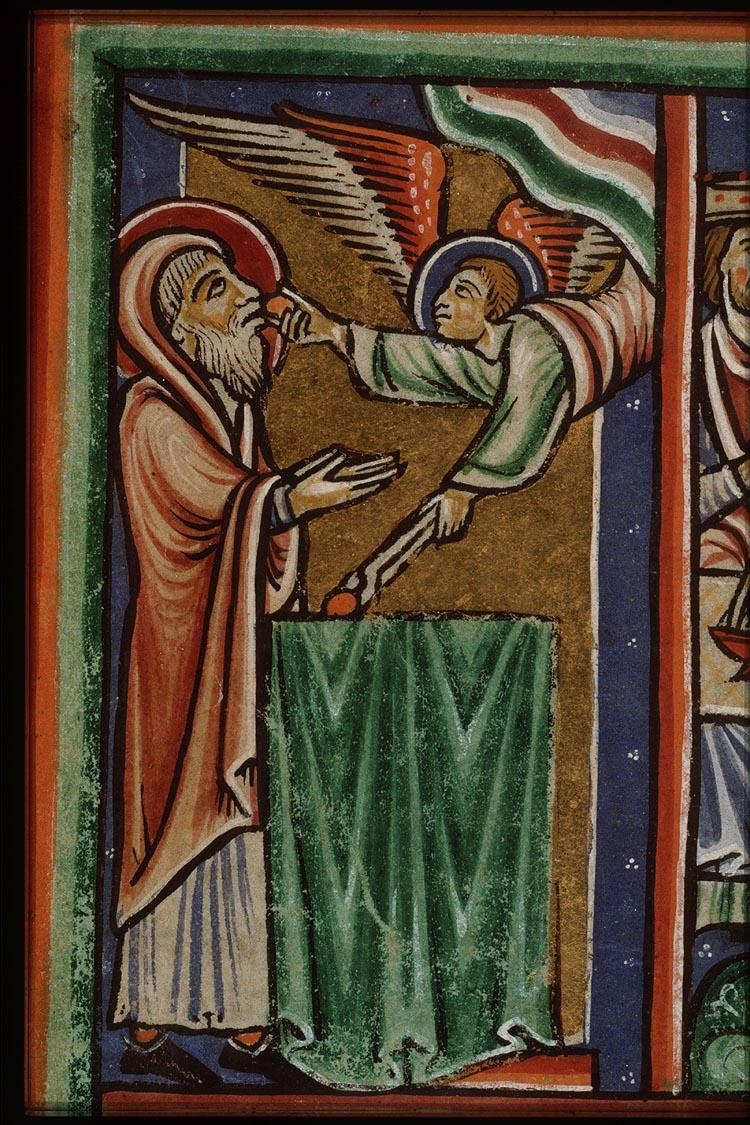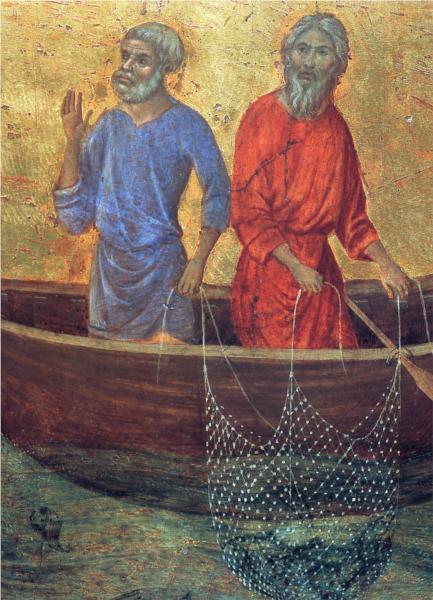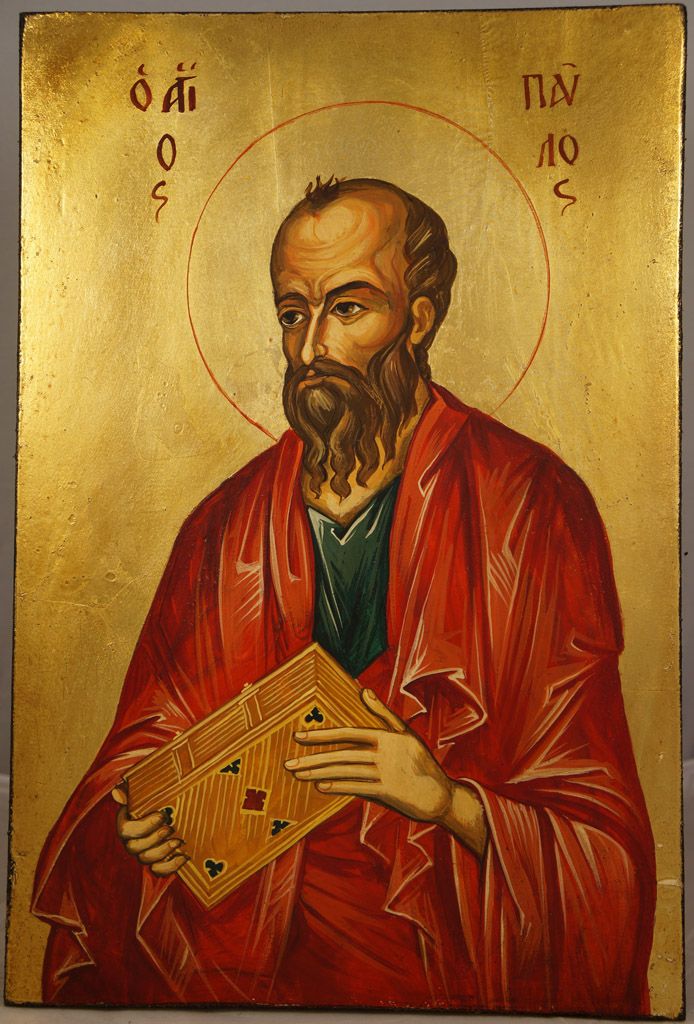By Sr. Anne, SSJD.



Where were you when you were summoned by the holiness of God to serve? To serve God in some sort of ministry as yet unnamed? Did it take you a long time to find out it was to the religious life?
I know that it did for me. We have begun sharing our stories with one another recently and there is a question that always crops up during that sharing and it is; How did you learn about SSJD implying another question of, how did you get called?
All of the readings today have something in common and that is, how Isaiah, Paul and Peter were called by God. Peter’s response to the miracle of the abundant catch fits nicely with the call of Isaiah in the Old Testament reading and Paul in the Epistle reading today.
Both Isaiah and Peter feel the magnitude of their unworthiness in the presence of the Holy. Both protest their unworthiness but prove faithful to the call. Isaiah and Paul were very devout Jews prior to the experience of their call. Both of them had an out of this world encounter with God through a heavenly vision. In Isaiah 1:1 we read “The vision of Isaiah, son of Amoz, concerning Judah and Jerusalem in the days of Uzziah, Jotham, Ahaz, and Hezekiah, kings of Judah.” In Acts 26:19 Paul testifies to King Agrippa saying “After that, I was not disobedient to the heavenly vision”
Isaiah 6:1-8 tells the story of the call of Isaiah. In the year that a great earthly king died, Isaiah was privileged to see an even great heavenly king sitting on a throne in the temple – probably in the Holy of Holies of the Jerusalem temple. In the presence of God’s holiness, he is struck by his own unholiness and he is overwhelmed by his own guilt. He cries “Woe is me, I am lost! I have unclean lips and I live among a people with unclean lips! My eyes have seen the Ruler, God Omnipotent!” for in his understanding, to see “God Almighty” is to die for he knew that God had said once to Moses, “for no one shall see me and live.” A seraph touches Isaiah’s mouth with a live coal, burning away the uncleanness of his lips and heart. He who was unholy is made holy. He who was unfit to stand in God’s presence is, by the grace of God, made fit.
Now God speaks, addressing the heavenly council, and asks, “Whom shall I send, and who will go for us?” Isaiah, only a bystander at this point overheard God’s question. Isaiah, caught up in the excitement of the moment – grateful to be cleansed and even more grateful to be alive says – “Here I am, Send me.” It was an “Aha!” moment that humbled him and prepared him for a life of service beyond anything that he otherwise could have thought or imagined.
In 1 Corinthians 15 verses 8 & 9, Paul pronounces himself “the least of the apostles, who is not worthy to be called an apostle, because I persecuted the church of God.” and “Last of all, as to one untimely born, he appeared also to me. For I am the least of the apostles, unfit to be called an apostle, because I persecuted the church of God.” In Acts Chapter 8 we read about this persecution, “Saul was ravaging the church by entering house after house, and dragging off both men and women, he committed them to prison.” Jesus’ appearance to Saul is recounted in Acts 9:1-8. He had been travelling to Damascus, when a bright light from heaven blinded him and voice asked, “Saul, Saul, why do you persecute me?” Blinded he continued into Damascus where he became a Christian.
Paul became an apostle late in time after Jesus’ ascension. Unlike the original twelve apostles, Paul did not have the opportunity to walk the pathways of Israel with Jesus – nor to hear his voice as he taught the crowds – nor to witness his miracles.
Paul acknowledges that he deserves no credit for his apostleship. He is an apostle by the grace of God. Paul felt a sense of indebtedness at being granted an apostle ship – the highest office in the church – which fueled his determination not to squander God’s gift to him. On his three missionary journeys, Paul founded a number of churches and won many people to Christ. He was the chief apostle to the Gentiles, and in Paul’s theology, everything good comes by the grace of God.
Each of the four Gospels tells of the call of the first disciples. Luke’s account is distinctive. This is the only account of the call stories to mention the great catch of fish. Jesus’ work has now grown to require the recruitment of disciples.
The story of the call of Peter begins when Jesus “got into one of the boats, the one belonging to Simon, and asked him to put out a little way from the shore. Then he sat down and taught the crowds from the boat.” This is Simon’s first appearance in this Gospel and it is his first act of obedience in that he responds favorably now to Jesus’ request to go out once again.
The story continues –When he had finished speaking, he said to Simon, “Put out into the deep water and let down your nets for a catch.” These words constitute a test for Simon. They also present Simon with an opportunity to see the kinds of wonders of which Jesus is capable.
Simon answered “Master, we have worked all night long but have caught nothing. Yet, if you say so, I will let down the nets.” Peter is doubtful but presents us with Peter’s second act of obedience. Peter accepts Jesus’ word as authoritative. If Jesus says it, Peter will do it. This obedience in the face of doubt opened the door to the miracle.
When Simon Peter saw it, he fell down at Jesus’ knees, saying “Go away from me, Lord, for I am a sinful man.” Then Jesus said to Simon, “Do not be afraid; from now on you will be catching people.”
This is an epiphany story – a moment of sudden insight – especially for Peter. Faced with a miracle, he finds himself in the presence of the Holy and overwhelmed by his own unholiness.
This was also the response of Moses at the burning bush at his call. It was also the response of Isaiah at his call. Now it is the response of Peter at his call. Each of these three, Isaiah, Paul and Peter became great leaders in the Church, but their greatness had its roots in God’s call. God calls each of us to some important task and it matters not whether Christ calls us to serve on a faraway mission field or to a far humbler task. In Christ’s hands, the modest task becomes a vehicle for epiphany, revelation, discovery or greater faith. Christ can turn our most humble act of obedience into a miracle of abundance. God chooses to work through us human beings, vessels of clay, bearing the treasure of the Gospel.
In 1 Corinthians 1 verse 26, Paul wrote, “Consider your own call brothers and sisters: not many of you were wise by human standards, not many were powerful, not many were of noble birth. But God chose what is foolish in the world to shame the wise; God chose what is weak in the world to shame the strong; God chose what is low and despised in the world, things that are not, to reduce the things that are, so that no one might boast in the presence of God.”


